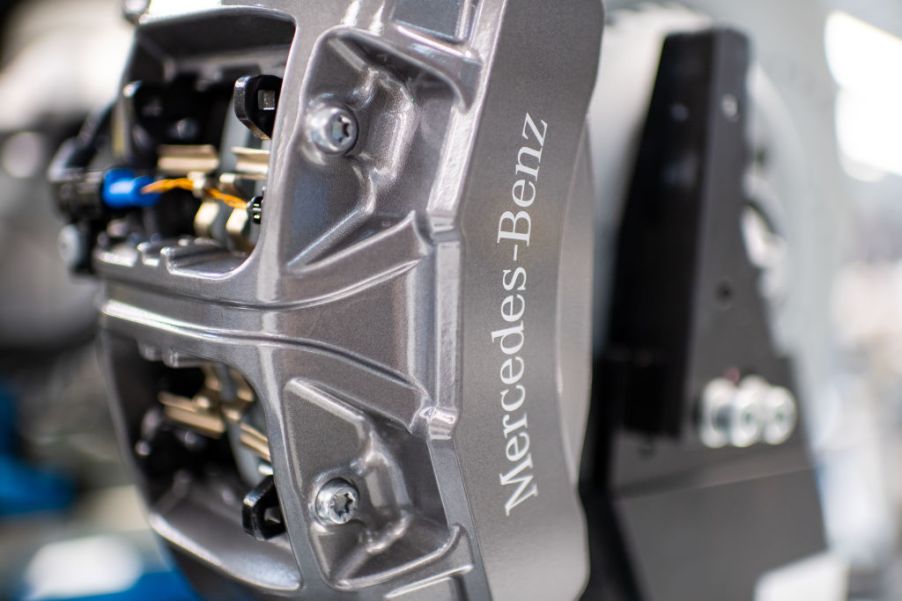
Why Do Worn Out Brakes Make a High-Pitched Squeal?
Have you ever noticed your brakes making that dreadful, high-pitched squealing noise and wondered why it was there? For the driver that has a general understanding of car maintenance, you may know that this noise indicates that your brake pads are nearing the end of their useful life. There can actually be several reasons why your brakes are making that awful sound, and they aren’t all bad. So when should you be concerned about your brakes squealing, and what causes them to make such a headache-inducing sound?
Consulting the experts
According to Firestone, one of the more widely-known tire companies that also has shops around the country, there are several reasons that your brakes might squeal that are completely normal. Between the brake pads and rotors, moisture can build up as a result of wet conditions such as standing water, snow, or rain, or even condensation built up from temperature changes. This moisture can cause a minimal amount of surface rust which will naturally resolve itself after a few uses of the brakes. In the meantime, however, it can make a slightly annoying squeal as the rust is removed by the friction.

Proper brake maintenance
While this squealing is designed to be incredibly annoying and attention-grabbing to let you know that your brakes are in major need of attention, you don’t have to wait until your brakes are this worn-out to replace them — and honestly, you shouldn’t. When you go in for an oil change and tire rotation, your service technician or mechanic may check your car’s rotors for excessive wear. There are a lot of factors that come into play when measuring how long a brake pad might last, so mileage isn’t always the best determining factor to base your service on.

The bad cause of the noise
While logic might bring you to conclude that the sound of the wearing brake pads against the rotors is the cause of that pesky — and in some instances, embarrassing, squealing noise. While the sound can indicate that your brakes are in need of attention, it isn’t the brake pad itself, but rather a small piece of metal that acts as a wear indicator. In other terms, brake systems are designed to make that awful noise to let you know that it is time to replace them.

Of course, your braking system can squeal for a number of other various reasons, and it could be the indication of a larger problem. As with any unusual noise your car might make, it is best to seek a professional to inspect the source of the noise and to make sure that whatever is causing it isn’t going to be a problem.


